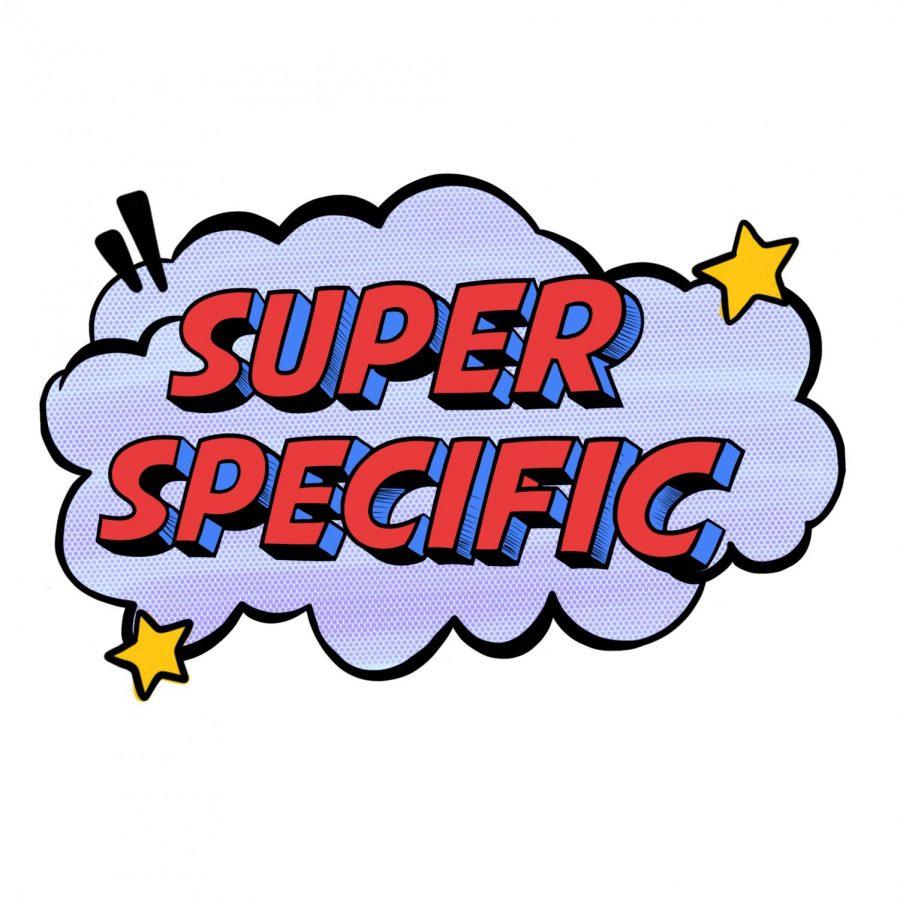Super Specific | The importance of a good superhero movie score
Super Specific is a bi-weekly blog about superheroes in pop culture.
November 8, 2021
If you ever happen to see me walking around campus with my earbuds in, there’s a good chance I’m listening to Hans Zimmer’s “Like A Dog Chasing Cars.”
Let me start this blog by saying that I would sell my left kidney to meet and/or see Hans Zimmer perform live in person. I think he’s one of the most talented people in the world, and as a child of the 2000s, I practically grew up on the movies that this composing legend scored.
“The Dark Knight” trilogy’s soundtrack has to be one of my favorites. Zimmer filled it with the perfect blend of synthesized sounds, bombastic horns and long solemn bouts of cello that fit perfectly for Batman’s brooding moniker.
I get literal chills every time I listen to “A Watchful Guardian,” which plays in the “The Dark Knight” ending scene. Do yourself a favor and watch it.
I bring this up because not every superhero movie is like this. Not every superhero movie has a memorable, spine-tingling score. And I regret to say that Marvel, more often than not, fails to do this.
There are some bright spots in Marvel’s work, particularly with Alan Silvestri’s “The Avengers” theme. It’s a theme that they carried over through most of the Avengers’ movies, and those that recognize its signature tune can recall that exact spine-tingling experience when they heard it in “Avengers: Endgame” at the climax of the battle against Thanos.
Nothing makes me cry more than hearing Steve Rogers say “Avengers Assemble” to the loud and triumphant track “Portals.”
But for the rest of the Marvel Cinematic Universe movies, these iconic themes usually fall flat.
For one, there aren’t that many musical themes that are consistent throughout MCU movies. Sure, some themes pop in and out of individual movies, but they’re never carried over to the next time we see the character — either in the sequel or one of the ensemble films.
Captain America is a great example. There are three films in the Cap trilogy, “Captain America: The First Avenger,” “Captain America: The Winter Soldier” and “Captain America: Civil War.” While I’ll go to my grave saying that CATWS’s end credit sequence and musical track, “Taking A Stand,” is one of the best closings for a superhero movie ever — there’s no overall musical consistency for the trilogy.
The CATFA’s soundtrack fits the film. Very upbeat, old-school and styled to its World War II setting. Alan Silvestri composed for that film, while Henry Jackman composed the following two films, and each have different tones.
Where CATFA’s score is brassy, CATWS and CACW’s scores are more electronic, and the musical themes in each of these films are never continued into the next. I could not hum a consistent Captain America theme if you asked me to.
You could argue that this musical shift represents Cap’s transition from the 1940s to the modern world but even if that is what Jackman was going for, I’d still prefer a theme that everyone could recognize. A theme the movies could re-use when Cap showed up on-screen.
To build up excitement for a character or a group you need a distant musical theme for them. A moniker of sorts, almost as blatant as the bat signal hanging over a gloomy clouded Gotham.
When done right, these musical themes can literally define a character.
John Williams, probably the greatest movie composer of all time, has a great example of this with his “Superman – Main Theme” from the 1978 movie “Superman.”
If there was ever an iconic superhero theme that most everybody could hum, besides the 1990s Spider-man show theme song possibly, the “Superman – Main Theme” would be it. It has a catchy hook, is easy to remember and is attached to an iconic film.
More importantly, Ken Thorne, who took over for Williams’ role in the second and third Superman films, continued to use and expand on the original musical theme from the first movie.
Superhero movies, especially nowadays, are Hollywood’s cash cows and are more likely to have sequels. Despite concerns about “superhero fatigue” the genre definitely isn’t going away anytime soon. According to data from Comscore, superhero movies grossed more than $2.9 billion at the domestic box office in 2018, which was about 25.5% of total ticket sales.
Besides simply sounding good, a well-crafted musical score can provide clues into the plot or the mindset of a character. A more general example is Williams’ own “Jaws” theme. You can tell exactly when the shark is coming in the movie, because of the theme’s buildup. And without the music, I can tell you that schitzy looking robotic shark would not be nearly as intimidating.
Or they can indicate cultural and emotional cues, such as the heavy use of drums in the “Black Panther” score, which won Ludwig Göransson an Academy Award. The waterfall fight between T’Challa and M’Baku in the first half of the movie would not be the same without them.
Instrumental scores aren’t the only way to do this. You can accomplish similar narrative goals with lyrical songs. The leap of faith scene in “Spider-Man: Into The Spider-Verse”— featuring the song “What’s Up Danger?” — creates intense feelings of rebirth and triumph for Miles Morales.
Either way, it’s the themes that are used over and over again that stick with us the most. These themes are strong, but also easy to remember. And they can often come to define a character more so than its actor, or even the movie.
Diana Velasquez is the Culture Editor at The Pitt News. She writes primarily about movies and pop culture. You can contact her at culture@pittnews.com



